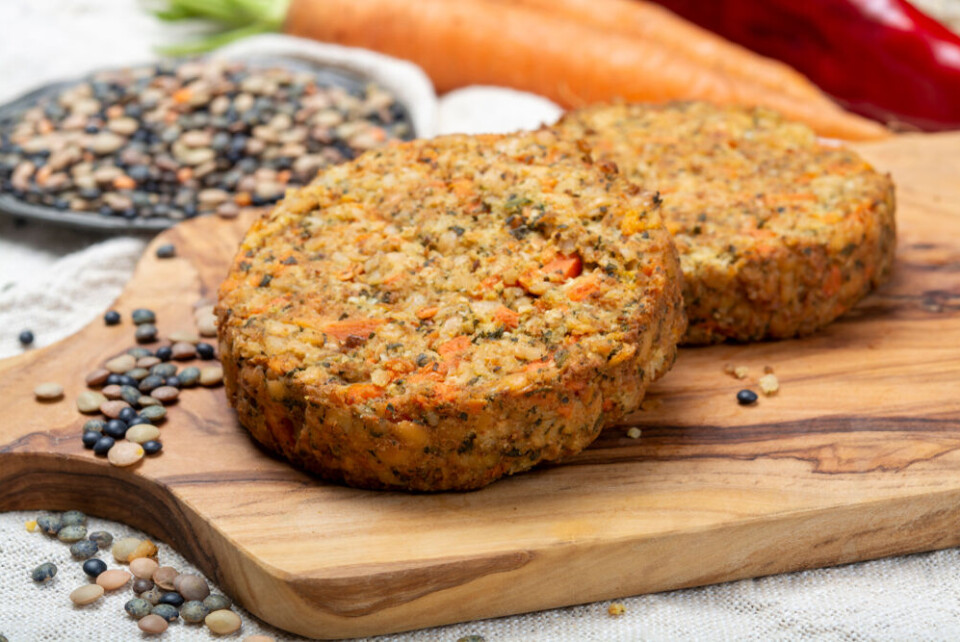-
Pistes closed, confinement orders: Alpine resorts deal with avalanche risk
Increased snowfall this weekend may cause further closures as busy school holiday season continues
-
Former French Interior Minister announces 2027 presidential candidacy
Bruno Retailleau recently asked prefectures to be tough on immigration
-
Ryanair axes Dublin-Rodez route but London connection retained
“We are disappointed but had no say in decision” say airport authorities
Meat substitute products can no longer use ‘meat’ terms, France rules
Terms such as ‘steak’ or ‘sausage’ will not be allowed on plant-based products. Opponents say this will put France ‘against the flow of current trends’

Meat substitute products made and sold in France will no longer be allowed to use meat-related words on their packaging, it has now been confirmed.
A decree in the Journal officiel on June 30 states: “It will no longer be possible to use terminology belonging to sectors traditionally associated with meat and fish to describe products that do not come from animals.”
This will include terms such as ‘steak’, ‘lardons’ or ‘sausage’, to describe plant-based products that are considered as meat substitutes.
The rule will enter into force from October 1, 2022. Products made and labelled before this date will be permitted to remain on sale until December 31.
Read more:Paris start-up creates 100% meat-free 'lardon' bacon
The decree lays out precise rules for the amount of vegetable protein allowed in meat products for them to be able to keep their ‘meat’-related names, for products that come from animals but have some vegetable protein.
For example, a hamburger (minced meat) may continue to carry a ‘steak haché’ label provided that its vegetable protein content does not exceed 7%. This percentage drops to 3% for frankfurters, 1% for black pudding or dry sausage, and 0.5% for bacon or lardons.
It comes after the word ‘steak’ was banned on vegetable-based products in 2020.
Read more:France bans word 'steak' on vegetarian products
Animal product producers have long called for such a decree, and have welcomed the latest move.
Jean-François Guihard, president of Interbev, the national interprofessional association for livestock and meat, told Le Monde: “[This is] an essential step towards transparency of consumer information and the preservation of our products and know-how.”
A statement from pig industry professionals welcomed the move but stated that it wanted the law to go further, and “protect animal names from [being used] on synthetic foodstuffs, such as ‘lab-grown meat’” that is made from microbial proteins or fungi.
Farmers’ union group la Fédération nationale des syndicats d'exploitants agricoles (FNSEA) said that the livestock farming sector welcomed the text, but also asked the government to "take the matter to Brussels in order to extend the scope of application to all products, whatever their origin".
Across the European Union, plant-based products are generally allowed to be described using meat-related terms, except in the case of dairy (the words ‘yoghurt’ or ‘cheese’ are not allowed to appear on plant-based dairy substitutes).
The decree in France specifically states that it only applies to products made in France.
It says: “‘Products that are’ legally manufactured or marketed in another Member State of the European Union or in Turkey, or legally manufactured in another state party to the Agreement on the European Economic Area, are not subject to the requirements of this decree".
In contrast, plant-based group l’Observatoire national de l’alimentation végétale has condemned the decree, saying that it “puts France in a conservative position, against the flow of current trends, and European policy on these questions”.
Plant-based trend growing in France
In March last year, it was estimated that the percentage of vegetarians and vegans in France was 5%, and a study of the latest figures available found that sales of meat substitutes in supermarkets grew by 11% year-on-year in 2019.
Food manufacturers have begun capitalising on the shift too.
Read more:More vegan and vegetarian food now in stores in France
Barbara Boyer, spokeswoman for animal rights group L214 Éthique et Animaux, said that “little by little, there are more vegan products being offered in France”.
“We can see that today the variety of vegetarian and vegan products in supermarkets and at restaurants is developing quickly,” she added.
“Many supermarkets, like Casino, Monoprix, Picard and Aldi, are launching their own range of vegan products so there are more alternatives,” she said.
“It’s true that we are trailing behind English-speaking countries like the UK, but over the past few years, we have seen a real evolution in France in terms of vegan offers at restaurants and shops. It’s coming slowly.”
A 2020 study found that 90% of vegetarians in France said they chose the diet to limit suffering to animals. Seven out of 10 of those polled said they did it for environmental reasons and 42% for health reasons.
Related articles
Carrefour France trials a 'vegan butcher' product range
More vegan and vegetarian food now in stores in France
























